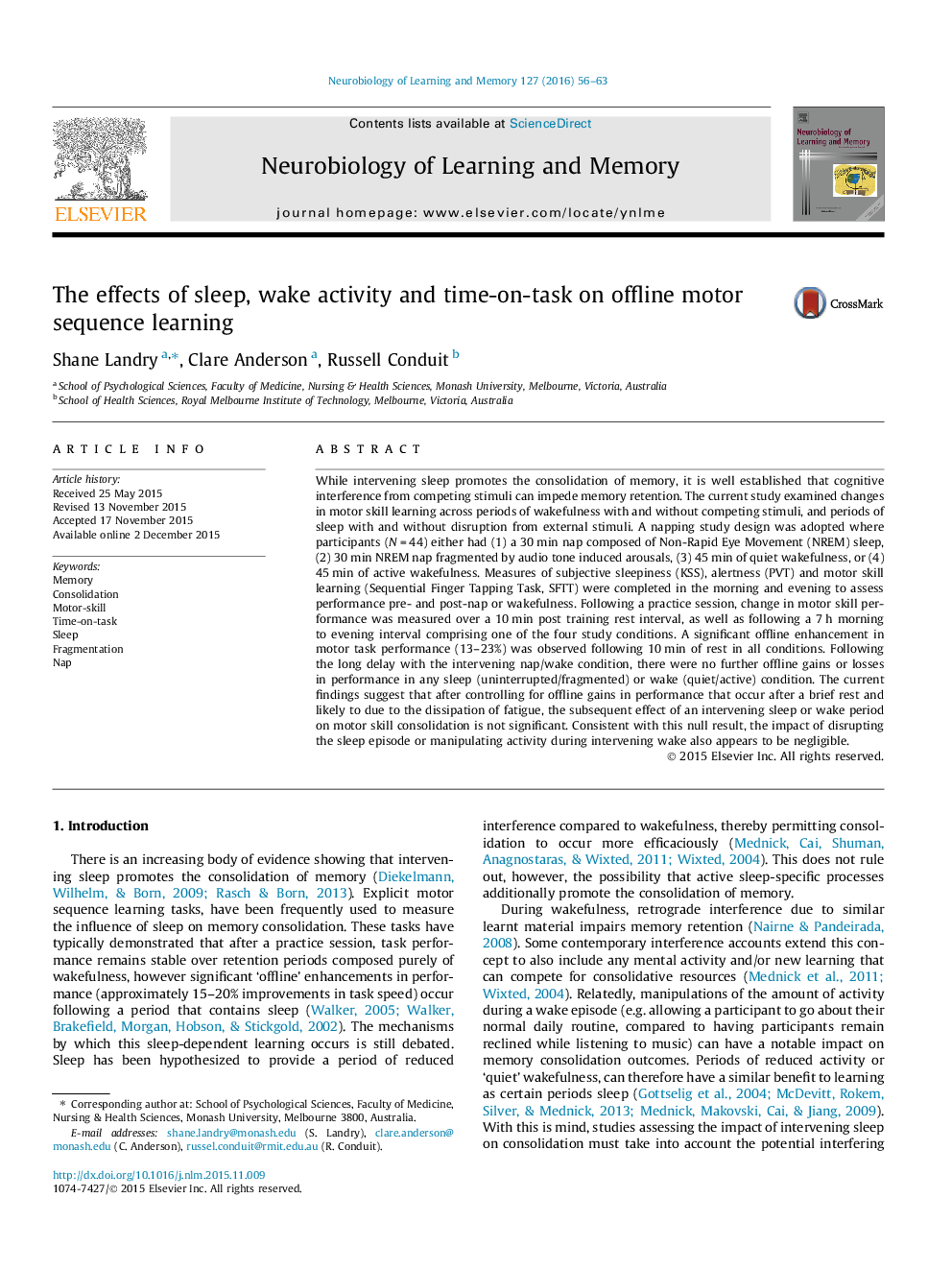| کد مقاله | کد نشریه | سال انتشار | مقاله انگلیسی | نسخه تمام متن |
|---|---|---|---|---|
| 936432 | 1475148 | 2016 | 8 صفحه PDF | دانلود رایگان |
• Enhancements in motor learning are thought to be dependent on intervening sleep.
• Recent findings suggest sleep may stabilize learning, rather than enhance performance.
• Significant gains in motor performance occurred over a post training rest interval.
• No further changes in motor performance occurred over a subsequent sleep or wake period.
• Sleep provided no benefit to the stabilization of motor learning compared to wake.
While intervening sleep promotes the consolidation of memory, it is well established that cognitive interference from competing stimuli can impede memory retention. The current study examined changes in motor skill learning across periods of wakefulness with and without competing stimuli, and periods of sleep with and without disruption from external stimuli. A napping study design was adopted where participants (N = 44) either had (1) a 30 min nap composed of Non-Rapid Eye Movement (NREM) sleep, (2) 30 min NREM nap fragmented by audio tone induced arousals, (3) 45 min of quiet wakefulness, or (4) 45 min of active wakefulness. Measures of subjective sleepiness (KSS), alertness (PVT) and motor skill learning (Sequential Finger Tapping Task, SFTT) were completed in the morning and evening to assess performance pre- and post-nap or wakefulness. Following a practice session, change in motor skill performance was measured over a 10 min post training rest interval, as well as following a 7 h morning to evening interval comprising one of the four study conditions. A significant offline enhancement in motor task performance (13–23%) was observed following 10 min of rest in all conditions. Following the long delay with the intervening nap/wake condition, there were no further offline gains or losses in performance in any sleep (uninterrupted/fragmented) or wake (quiet/active) condition. The current findings suggest that after controlling for offline gains in performance that occur after a brief rest and likely to due to the dissipation of fatigue, the subsequent effect of an intervening sleep or wake period on motor skill consolidation is not significant. Consistent with this null result, the impact of disrupting the sleep episode or manipulating activity during intervening wake also appears to be negligible.
Journal: Neurobiology of Learning and Memory - Volume 127, January 2016, Pages 56–63
